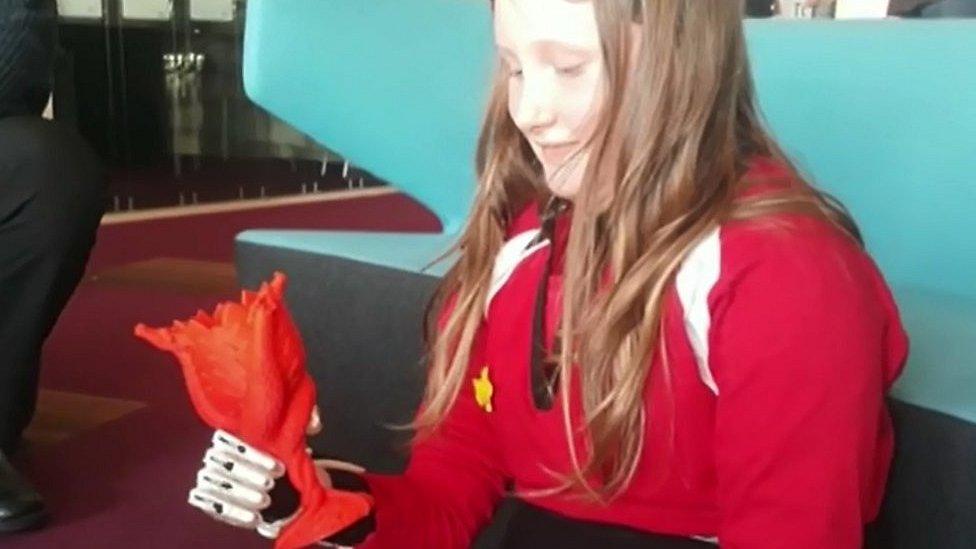Morriston Hospital rebuilds cancerous jaws with 3D printing
- Published
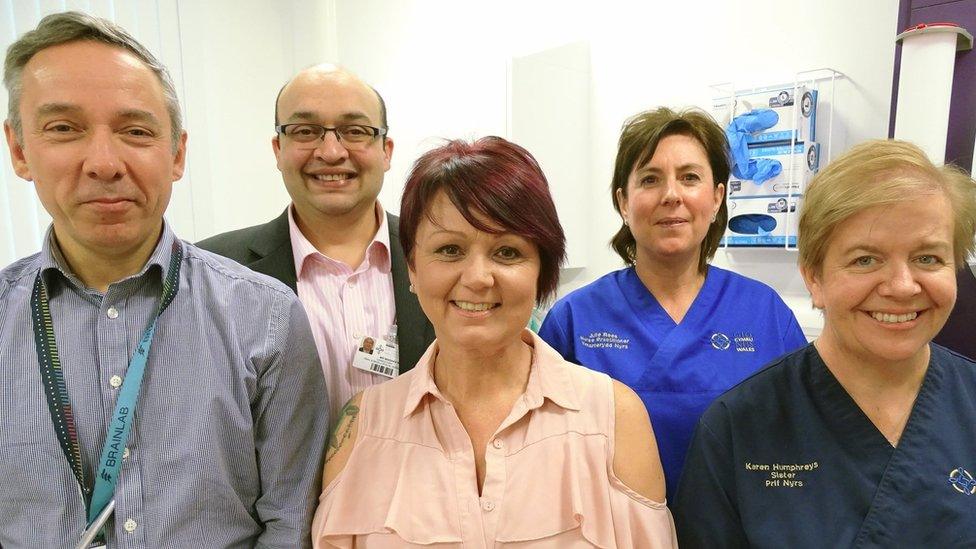
Patient Debbie Hawkins with Morriston Hospital's surgical team
A surgical team at Swansea's Morriston Hospital has created a technique to reconstruct jaws affected by cancer using 3D printing, said to be one of the first of its kind in the world.
The method uses 3D printed titanium implants that are anatomically specific to the patient.
Store worker Debbie Hawkins from Swansea was the first patient to have the "amazing" procedure.
Surgeons rebuilt a section of her jawbone after she developed a tumour.
The technique combines traditional bone grafts with 3D printed titanium implants that can be created to fit an individual patient's anatomy.
Ms Hawkins said: "When they told me what the procedure involved I was scared at first. I really didn't know what to expect. But what they have done, and the aftercare I have received, has been absolutely amazing".
She was in hospital for just two weeks after her operation in August last year, which also used 3D technology to plan the operation in advance. She was able to return to work after three months.
Surgeons removed and rebuilt a section of Debbie Hawkins' lower jawbone after she developed a tumour - which had grown to the point where there was a risk it would have broken her jaw.
"Now and again I do have a few problems with my speech because I'm having to make certain jaw movements," she added.
"But I'm feeling much better. I get my odd days but otherwise I'm getting stronger all the time."
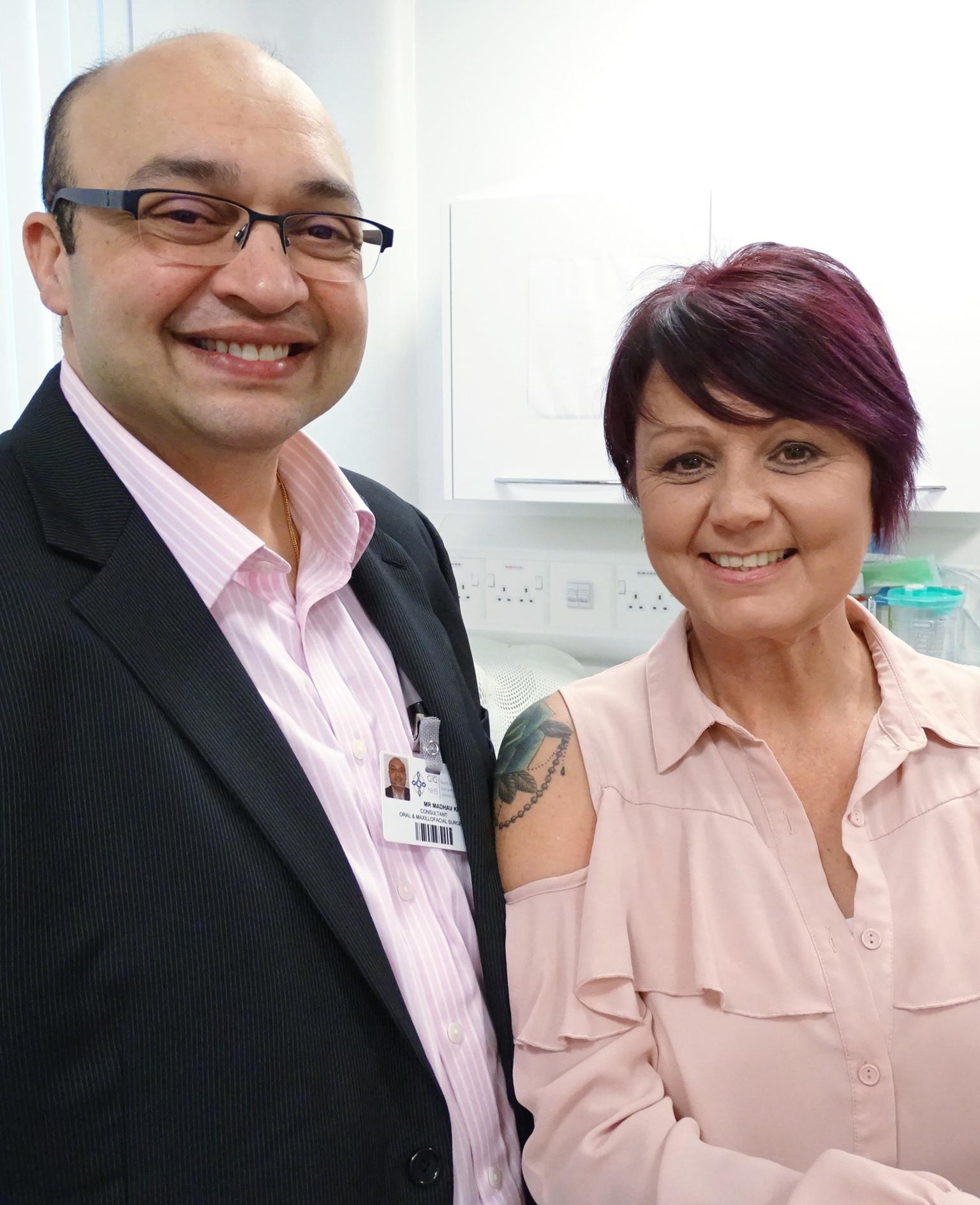
Debbie Hawkins, pictured with consultant surgeon Madhav Kittur, was the first patient to have this surgery.
Surgeons traditionally used a length of fibula taken from the leg to replace sections of jaw which had to be removed because of cancer.
This method often compromised the shape of the jawline, or meant the jaw was set too low to allow for dental implants.
Morriston's 3D technology uses the patient's CT images to design an anatomically-accurate titanium implant which fixes the fibula bone in place and maintains the aesthetic shape of the jawline.
The team also creates cutting guides so that the bone taken from the fibula exactly matches the removed section of the jaw.
Peter Llewelyn Evans, Maxillofacial Laboratory Services manager at Morriston Hospital, said: "The titanium implant fits the patient's jaw perfectly without the surgeon having to do any adjustment."
Ms Hawkins' consultant surgeon, Madhav Kittur, said five procedures had already been carried out at Morriston, with a sixth in the planning stage.
He added: "It has taken away the uncertainty. We know exactly what is going to happen before we go into theatre as everything is computer planned.
"This can save a lot of time - up to two hours. On average this operation takes eight to 10 hours, so when we take two hours out of that it is quite a sizable reduction.
"This is a big advance. It's better aesthetically, the patient is under anaesthetic for less time, and recovery is better.
"Although we haven't yet measured it, I would even say that the length of stay in hospital is also reduced."
- Published12 July 2017
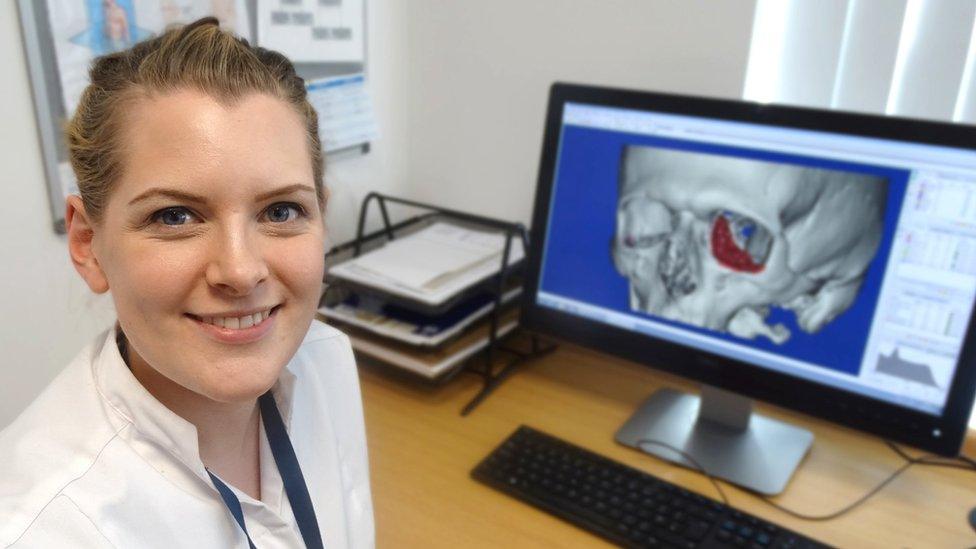
- Published6 January 2017
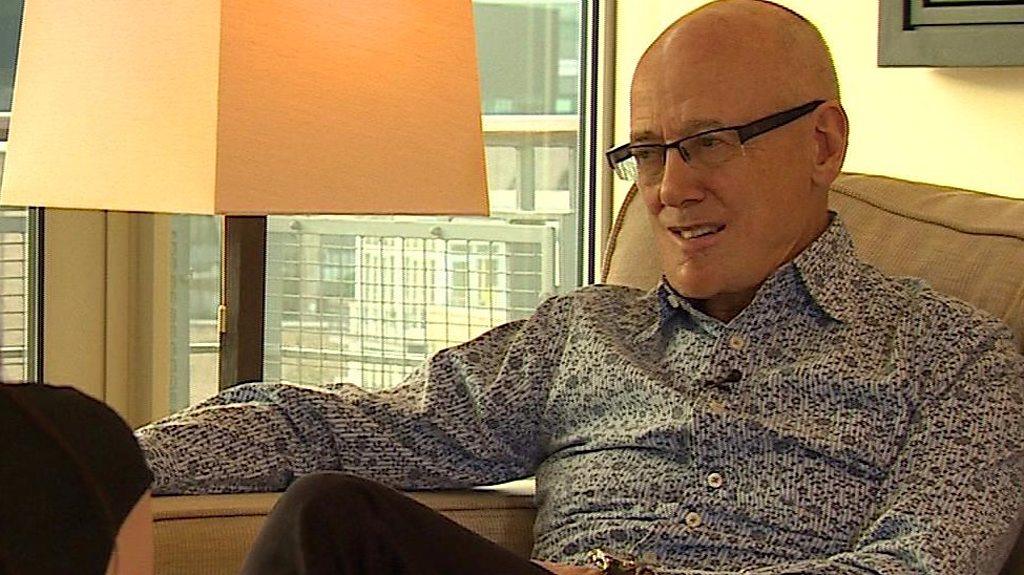
- Published12 July 2017
